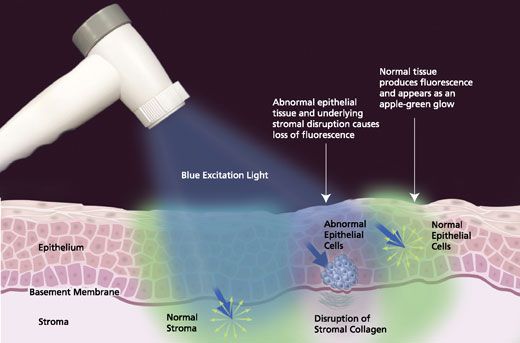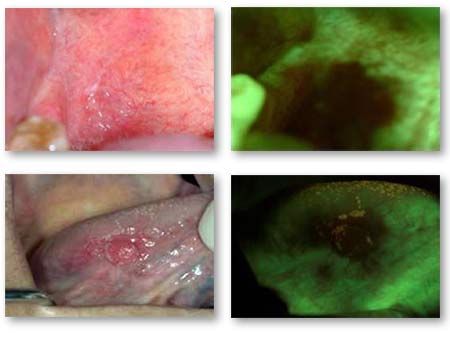Oral Cancer Screening
Here at Back 2 Basics Dentistry we take oral cancer serious! Every time a dentists completes an exam he or she is looking visually for signs of oral cancer but now with the Velscope we can detect it much earlier, even before the naked eye can detect it. This helps save lives but also helps minimize disfiguring surgery.
Overall Oral Health
There’s a growing trend within general dentistry that stresses the importance of overall oral health – not only health of teeth and gums, but of all the soft tissues in the oral cavity and oropharynx. Growing numbers of clinical practitioners now incorporate routine intra- and extra-oral head and neck exams into their hygiene appointments to screen for dysplasia, oral cancer and a host of other oral diseases.

Oral Cancer
Approximately 36,540 Americans will be diagnosed with cancer of the oral cavity and pharynx in 2010. During the same time period 7,880 Americans will die of oral cancer.*
One of the VELscope system’s most important tasks is to help identify areas that might, if not identified and treated, progress to oral cancer. The statistics below, from the National Cancer Institute’s SEER Database, 1999-2006, are a compelling argument for regular VELscope exams:
- Found early, while still Localized (confined to the primary site), oral cancer’s five-year survival rate is good: about 83%. Only 33% of all oral cancer discoveries fall into this category.
- Found while Regional (progressed to regional lymph nodes) the five-year survival rate drops significantly, to about 55%. Approximately 46% of all oral cancer discoveries are Regional.
- Found late, oral cancer’s five-year survival rate is poor: approximately 32%. This accounts for approximately 14% of all oral cancer findings.

HPV — Changing the Demographics of Oral Cancer
An increasing body of evidence points to a strong link between particular strains of the human papilloma virus (HPV, most notably strain 16) and a certain type of oral cancer that occurs in the oropharynx. HPV 16 is the same strain associated with almost all cervical cancer. Many experts now recommend that all adult patients over the age of 18 receive a thorough intra- and extra-oral head and neck exam annually.